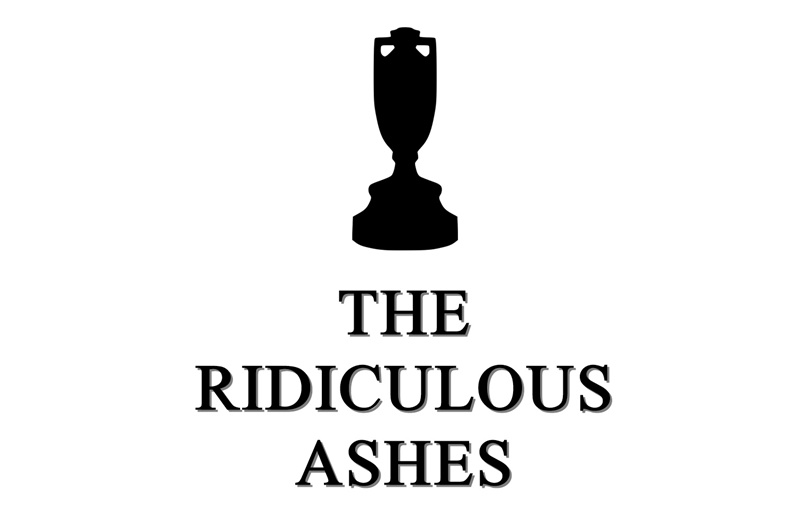We’re doing another series of The Ridiculous Ashes, the podcast we do with Dan Liebke in which we revisit the funnier moments of historic Ashes series and decide which side made the more significant comedy contribution. A few people have previously been put off by the fact that Series 1 (1997) and Series 2 (2013/14) both focused on England defeats. Hopefully some of those people will be willing to give the 2009 Ridiculous Ashes a go.
As you may or may not remember, the first Test of the series was pretty ridiculous. It was the one where James Anderson and Monty Panesar batted out a draw.
We’ll add embeds of all the episodes in Series 3 further down the page, as and when they go live.
You can also subscribe through whatever podcasting thing you use.
Here are links to all the series.
Episode 1
First up, we’re off to Cardiff where Dan and Alex discuss era-defining Haustralians, throatward defensives and the match-saving heroics of Monty Panesar, James Anderson and Bilal Shafayat.
Episode 2
Off to Lord’s for the second Test of the 2009 Ridiculous Ashes. Dan and Alex discuss disproportionate emotion, Keystone Cops tributes and Mitchell Johnson bowling to the left and bowling to the right.
Episode 3
Over to Edgbaston for the third Test of the 2009 Ridiculous Ashes. That’s where Dan and Alex examine Graham Onions, crowd participation and interminable centuries.
Episode 4
The fourth Test of the 2009 Ridiculous Ashes sees Dan and Alex head to Headingley. While there, they analyse winning the toss and collapsing, pantomime villainy, and the power of a good old-fashioned ‘sod it’ partnership.
Episode 5
Over to The Oval for the fifth and final Test of the 2009 Ridiculous Ashes. With the series locked 1-1, we are introduced to Jimmy Anderson’s first Test duck, Jonathan Trott’s first Test century and the enigmatic figure known only as Simon Katiche.



On a very depressing day to be a cricket fan, this is just the tonic.
I think this is the series that made me regularly start following this website
And now we’re revisiting it as ‘history’.